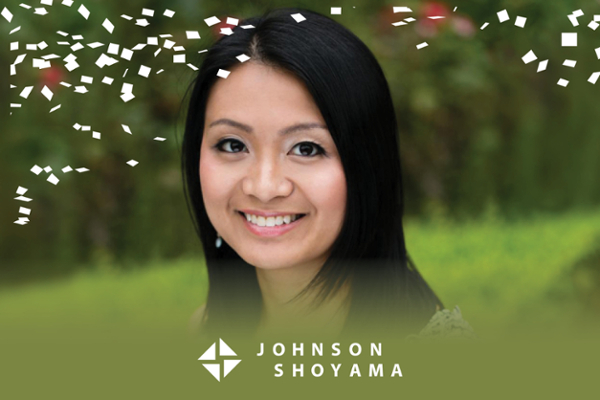
MHA program supports key moments in U of R graduate’s career
Winnie Ma was already experienced in clinical pharmacy but looking for concrete ways to build her professional leadership skills when she decided to enroll in the Master of Health Administration (MHA) program from Johnson Shoyama Graduate School of Public Policy (JSGS), University of Regina (U of R) campus.
By Emilie Neudorf, Communications and Marketing AssistantWhile completing her MHA program, Winnie continued her career and stepped into a new leadership role as a Pharmacy Coordinator, overseeing pharmacy operations at an acute care hospital.
“Although my professional training prepared me well to be a pharmacist, there was limited focus on developing leadership skills and systems thinking,” said Winnie. “ I was drawn to the MHA program as it provided an opportunity to deepen my understanding of the healthcare system as a whole and learn how to make more strategic and informed decisions. Soon after I started the MHA program, I was encouraged to apply to a new pharmacy leadership role”
Winnie customized her JSGS experience in ways that benefitted her career, such as changing the order of courses to correspond with key projects at work. For instance, when she began her new role as Pharmacy Coordinator, she was able to learn about LEADS leadership competencies at JSGS during the transition.
“One of the things I appreciated most about the JSGS MHA program was the variety of courses offered and the flexibility of completing them in any order. Being able to time the MHA courses with relevant projects or initiatives at work provided real-world opportunities to enrich my learning experience and made the course content more applicable.”
The timing was perfect when Winnie took JSGS 826: Human Resource Management in Health Care while she was involved in developing a recruitment and retention strategy in her workplace. Also, when Winnie had to prepare briefing notes at work for the first time, she had just started learning to write more affecting briefing notes in her Health Policy course. She was also thankful to learn about Indigenous Health Policy, as it provided greater insight and a new appreciation for her organization’s approach to Indigenous wellness and reconciliation.
The experiences Winnie had at JSGS not only suited her current tasks at work but also fit in her schedule while working full-time. She believes that other working professionals can also balance full-time work and the MHA program.
“Completing a degree while working full-time can feel daunting at first but it creates many more opportunities to integrate learning into your daily work.”
The online delivery of her program gave Winnie the flexibility she needed, while still delivering on the quality of instruction and discussion she was hoping for.
“The online learning platform is easy to use and course content is well-organized and relevant, with a variety of group and individual assignments. Readings and videos covered a wide range of topics, and courses with live lectures and group discussions were especially engaging,” said Winnie. “Overall, the learning environment at JSGS is stimulating, flexible for working professionals, and maintains a good balance between asynchronous learning and interactive elements through lectures and discussion forums.”
Even though Winnie completed her MHA online, she was delighted to have the chance to visit the U of R campus and attend the JSGS in-person residency weekend before many in-person events switched to a virtual format due to COVID-19. She also enjoyed attending her second residency weekend virtually in the past year, appreciating the engaging discussions and networking she had at both events.
Winnie encourages future MHA students to connect with a mentor in their organization and connect with other MHA students.
“The MHA program attracts students with diverse backgrounds in healthcare from across the country. The most insightful discussions occur when unique perspectives are shared, regardless of how many years of experience you have. So don’t be afraid to share your experiences!” said Winnie. “Also consider consolidating what you’re learning by connecting with a mentor to reflect on how interesting topics from your courses apply to your organization.”
Winnie credits the MHA program for broadening her perspective of the health care system and her role within it, through a better understanding of how policy decisions are influenced and how systems thinking can result in more innovative solutions.
“The program has helped me develop into a more confident and reflective leader, build stronger collaborative relationships, and think more critically about how the health system can be improved,” said Winnie.

